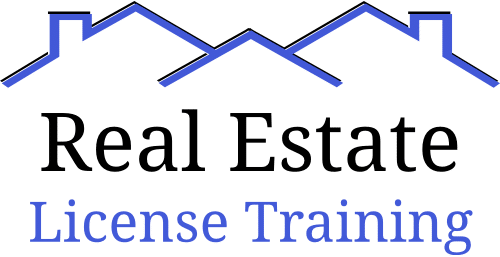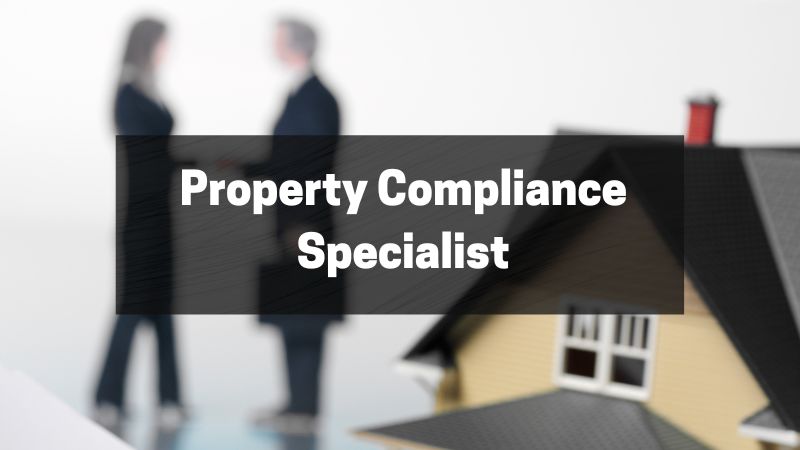Are you interested in real estate and have an eye for detail?
Do you have a knack for navigating through the complicated web of legal and regulatory requirements?
If so, then becoming a Property Compliance Specialist might just be the perfect career choice for you!
Now, whether you’re already in the real estate industry or just starting out, this article is for you.
Here, we’re going to show you how to become a Compliance Specialist.
We’ll walk you through the steps, as well as give you additional tips and answer FAQs.
With this, you’ll know what you need to do.
So are you ready?
Let’s begin!
What Is a Property Compliance Specialist?

A Property Compliance Specialist is a professional who makes sure that all real estate and property-related transactions are in line with the area’s laws, regulations, and industry standards.
They have the important responsibility of protecting their clients from legal and financial risks.
Their duties may include:
- Reviewing contracts and leases for accuracy and completeness
- Performing audits to uncover any areas of non-compliance
- Developing policies and procedures to ensure conformance with regulations
- Updating records/documents so they remain current
- Providing advice on how to handle potential compliance issues
- And much more!
Now, Property Compliance Specialists typically work for real estate agencies, property management companies, banks, financial institutions, or government agencies.
To handle the responsibilities effectively, most employers prefer candidates with at least a Bachelor’s degree in business law or another related field, such as accounting or finance.
How to Become a Compliance Specialist in 6 Steps
So you want to become a Compliance Specialist?
Then you need to fulfill these 6 steps:
- Get the right education
- Gain relevant experience
- Earn your certifications
- Network, network, network!
- Hone your skills
- Apply as a Property Compliance Specialist
Let’s go over these steps one by one.
Step #1: Get the Right Education
As we said earlier, most employers look for someone that has a Bachelor’s degree in business law, real estate, management, accounting, finance, or any other related field.
So first things first, go and work on your education.
Gain all the knowledge you can get.
This will be super useful to you in your Compliance Specialist career.
If you want to learn more, some institutions even offer degrees or certifications in property management or compliance.
Also, to gain more real estate knowledge, consider enrolling in an online real estate school. These can help you get a better grasp of real estate-related transactions and processes.
You can check here for great online real estate schools available.
Step #2: Gain Relevant Experience
No matter how much knowledge you have…
It won’t be the same as the actual experience.
This is why, to reach the top, you need to gain relevant experience too.
This step is crucial for building your skills and understanding the industry.
So go and look for entry-level positions or internships in property management, compliance, or related areas.
Remember, your aim is to be a Compliance “Specialist”. This means you need to be an expert in the field.
Of course, this step will not only give you practical experience but also help you make valuable connections in the industry.
Step #3: Earn Your Certifications
No, you don’t need a certification to become a Compliance Specialist…
But you should get one to prove your expertise.
No doubt, this will make you more competitive in the job market.
Consider obtaining certifications like the:
- Certified Specialists of Occupancy (CSO-PH)
- Certified Compliance and Ethics Professional (CCEP)
- Certified Regulatory Compliance Manager (CRCM)
Usually, these certifications will come with many requirements — make sure you fulfill these to get the certification you want.
Step #4: Network, Network, Network!
In the world of Property Compliance Specialists, networking is essential.
Join professional associations like the National Association of Home Builders (NAHB), the National Affordable Housing Management Association (NAHMA), or the Institute of Real Estate Management (IREM).
Attend conferences and workshops.
Participate in online forums to stay up to date on industry trends and changes in regulations.
Networking can lead to potential job opportunities, so don’t be shy — put yourself out there!
Step #5: Hone Your Skills
You’ll need a range of skills to excel as a Compliance Specialist.
You’ll also need to show off these skills when applying for the job.
So no matter what you do, always work on strong analytical skills, attention to detail, and excellent communication.
Get familiar with property management software and stay informed about changes in federal, state, and local regulations.
Consider taking additional courses or workshops to sharpen your expertise and stay ahead of the game.
Step #6: Apply as a Property Compliance Specialist
With education, experience, certifications, network, and skills under your belt, it’s time to start applying for Property Compliance Specialist positions.
First, think about where you’d want to work in.
Do you want to work with a real estate agency?
Maybe you’re more interested in banks or financial institutions…
Or maybe you want the government agencies.
From there, use job search engines, LinkedIn, and your professional network to find openings.
Tailor your resume and cover letter to highlight your relevant skills and experience — and don’t forget to follow up on your applications.
When you do get hired, CONGRATULATIONS!
You made it!
The journey was certainly long and tough — but it’s all worth it now.
Tips for Compliance Specialists: Building Your Professional Network
Building a strong professional network is key to your success.
Not only will it help you find job opportunities, but it’ll also keep you in the loop on industry trends and developments.
So even if you’re already a successful Compliance Specialist, it’s still a good idea to network.
Let’s go through some tips to help you become a networking master.
Attend Industry Events
Make it a point to attend conferences, seminars, and workshops related to property compliance and real estate. These events offer valuable learning opportunities and serve as networking goldmines.
Don’t be afraid to strike up conversations with fellow attendees, exchange contact information, and follow up after the event.
Remember, you’re all there to learn and grow, so be open to making new connections!
Leverage Social Media
Social media platforms like LinkedIn, Twitter, and even Facebook can be powerful networking tools.
Create a strong online presence by sharing industry news and insights, as well as engaging with others in your field.
Join LinkedIn groups and participate in discussions to showcase your expertise and expand your network. Don’t forget to connect with your colleagues, former classmates, and other industry professionals.
You need others to keep up with updates and stay informed about job opportunities.
Volunteer for Industry Initiatives
Volunteering for industry-related initiatives or committees not only contributes to the betterment of your field but also gains visibility among your peers. This can lead to new connections and even job opportunities.
Plus, you’ll have the chance to work closely with other professionals. In turn, this will allow you to forge strong relationships that can last throughout your career.
Build Relationships, Not Just Contacts
When it comes to networking, it’s important to focus on building meaningful relationships rather than simply collecting contacts. Get to know the people in your network, and take the time to understand their needs and goals.
Offer your assistance when you can.
Don’t hesitate to reach out when you need help or advice.
By nurturing these relationships, you’ll create a strong support system that will serve you well in your career.
Be Persistent and Patient
Building a robust professional network takes time and effort, so don’t get discouraged if you don’t see immediate results.
Keep attending events, engaging online, and nurturing your relationships.
Your network will grow organically over time — and the connections you make today may lead to opportunities down the road.
Compliance Specialists Certifications: Choosing the Right Program for Your Career
When searching for certifications in property compliance, it’s important to consider the right program for your professional goals.
The Certified Compliance and Ethics Professional (CCEP) and the Certified Regulatory Compliance Manager (CRCM) programs are two of the more commonly recognized and respected programs in this field.
Both provide comprehensive instruction on regulatory requirements, risk management, and ethical standards.
With a thorough understanding of these areas, professionals can:
- Better identify potential compliance issues
- Devise solutions to mitigate risks
- Assist with the implementation of necessary changes
- Provide helpful guidance to employees and managers alike
Certifications can also give job seekers an edge over other candidates when pursuing promotions or new opportunities.
To decide which certification is best suited for you, you must understand the different requirements and objectives of each program…
Certified Compliance and Ethics Professional (CCEP) Program
CCEP focuses on helping organizations develop holistic approaches to stay compliant with applicable law while maximizing ethical performance. It covers topics such as:
- Legal principles related to corporate governance and ethics programs
- Assessing risk across all departments
- Performing internal audits
- Drafting policies
- Responding to inquiries from regulators
- Conducting investigations into possible violations of laws or regulations
- Developing strategies for preventing future violations
- Educating other personnel about compliance measures
- Recommending corrective action in response to non-compliance events
Certified Regulatory Compliance Manager (CRCM) Program
On the other hand, CRCM provides training that puts more emphasis on overseeing a specific compliance function within an organization. It goes beyond CCEP by delving deeper into matters such as:
- Identifying vulnerabilities before they become severe threats
- Developing systems that help catch potential non-compliant behavior quickly and prevent it from occurring again
- Designing effective training modules tailored toward personnel who handle sensitive information related to regulatory requirements
- Monitoring third parties engaged by the organization to comply with applicable laws/regulations
- Analyzing financial data accurately to assess an organization’s adherence to regulations
Earning one of these certifications will not only show employers that you have dedicated yourself to gaining knowledge in property compliance. It will also demonstrate that you have an advanced understanding of how to ensure their organization meets all necessary guidelines – both internally and externally – while successfully mitigating any risks associated with non-compliance.
Frequently Asked Questions About Compliance Specialists
What Types of Industries Do Compliance Specialists Typically Work In?
Property Compliance Specialists are most commonly associated with residential real estate. However, they can also find employment in commercial real estate, property development, government agencies, non-profit organizations, etc…
Their expertise in property regulations and compliance makes them valuable assets in any sector dealing with properties and land use.
Are There Any Specific Software or Tools that Compliance Specialists Should be Familiar With?
Yes, Compliance Specialists should be familiar with software and tools that help with document management, property inspection, and compliance tracking.
Some popular options include Yardi, AppFolio, and Buildium.
Additionally, proficiency in Google Docs, especially Spreadsheets, is beneficial for managing data and creating reports.
Can I Work as a Compliance Specialist if I Have a Background in Law or Urban Planning?
Absolutely! This is very beneficial in a property compliance role, as it equips you with knowledge about regulations, zoning, and land use.
How Much Does a Compliance Specialist Earn?
According to Glassdoor, the national average annual salary for Compliance Specialists is $61,772 (as of August 2023). This makes it one of the highest-paying real estate careers today.
Can I Start My Own Compliance Consulting Business?
Yes, experienced Compliance Specialists can start their own consulting businesses.
You can offer services like property inspections, compliance reviews, and advisory services to property owners, developers, and management companies.
Before starting your business, make sure to study local licensing and registration requirements.
Furthermore, put effort into building a strong professional network to generate leads and referrals.
How Can I Stay Up to Date on the Latest Regulations and Trends in Property Compliance?
Staying informed about industry developments is crucial for Compliance Specialists.
You can do this by subscribing to newsletters, blogs, and publications related to real estate and property management.
Additionally, participating in professional associations, attending industry events, and engaging in online forums will help you stay current on changes in regulations and best practices.
Final Thoughts
And that is how to become a Compliance Specialist.
Yes, it’s a long journey to the top.
You’ll have to go through all the steps (with each one taking several years to complete).
But once you become a Compliance Specialist and start helping out and earning big, you’ll see that it was all worth it.
So whether you’re already in the real estate industry or not, this guide helps you get your dream career.
Best of luck!

